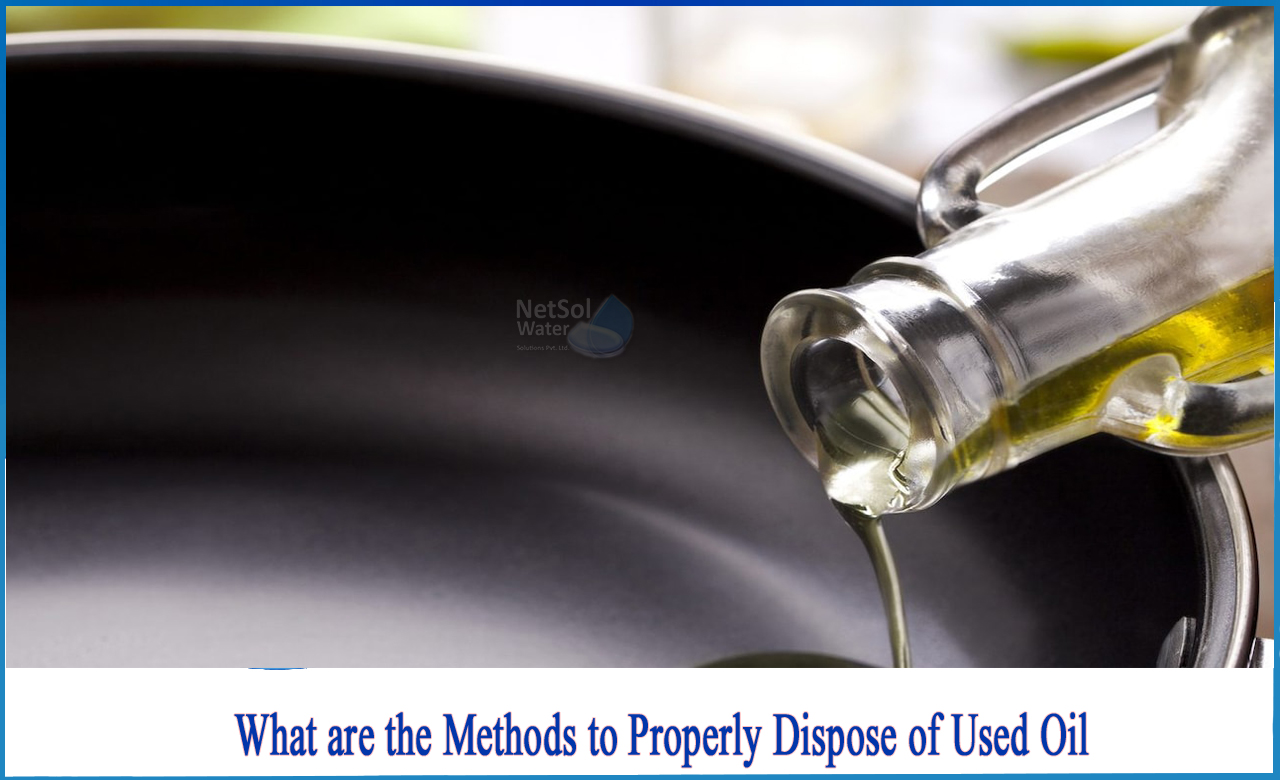What are the methods to properly dispose of used oil?
All parties involve advantage from used oil disposal. It contributes to a cleaner, safer environment, complies with legal requirements, and spreads the useful life of raw materials. Spilling or throwing away used oil is both illegal and a major source of pollution. Without proper disposal, used oil enters waterways and pollutes them.
Sickness can result from exposure to this contamination. Some who swim in or drink contaminated water are at risk of becoming ill. It can also harm aquatic life, causing ecosystems to collapse. The amount of oil in one transportation oil change, according to the Environmental Protection Agency (EPA), can pollute a million gallons of freshwater. Waste oil disposal is important; prefer proper recycling over irresponsible disposal methods.
What is used oil?
The definition of used oil includes many, but not all, types of used oil. Among the crude and synthetic oils on the list are the following:
• Applied synthetic oil
• Recycled engine oil
• Transmission fluid used
• Refrigeration oil used
• Recycled compressor oil
• Metalworking oil used
• Industrial hydraulic fluid used
• Copper and aluminium wire drawing solution used
• Electrical insulating oil used
• Industrial process oil used
What industries generate used oil?
• Metalworking facilities: As they cool, grind, machine, or mill metal components, metalworking facilities use a variety of oils and other lubricating liquids. Oils help to decrease friction and smoking in the workplace, making it a safer and more productive environment. Metalworking oils must be disposed of in a responsible manner.
• Automotive shops: Oil is used in automotive shops on a daily basis. They repair and maintain automobiles with transmission fluids, brake fluids, greases, and other oil-based compounds. It is critical for auto businesses to properly dispose of their spent oil.
• Agricultural professionals: Oil is required on farms to operate and repair heavy machinery and equipment. Although some farms generate more waste oil than others, efficient disposal is essential.
• Quick lube shops: In lieu of a full-service stop, a quick lube store provides minimal oil change services to vehicle owners. These shops consume a lot of oil, therefore they need a responsible way to dispose of it.
• Fleet maintenance facilities: Fleet maintenance facilities ensure that cars are in good operating order for businesses. This frequently necessitates the use of the same oils and lubricants as a car shop.
How to store used oil properly?
• Use high-quality containers: Check for leaks, rust, and deterioration in your containers. Regularly inspect your containers to ensure they are in good working order.
• Add Signage: Use "Used Oil" signage on all containers, fill pipes, and transfer things. This will help prevent hazardous garbage from being mixed up inadvertently.
• Establish protocols: Establish documented procedures for when and how to handle old oil at your business to reduce the risk of leaks, spills, and other incidents. Make sure your personnel are well-versed in these practises.
• Be prepared for accidents: While following these instructions will lessen the likelihood of an accident, leaks may still occur. Be on the lookout for that possibility. Create written plans that include the procedures and tools to be employed in the event of an oil leak. To contain the spilled oil, one may need to install a containment berm, sump, drain cover, or absorbent mat. As soon as feasible, take action to prevent spent oil from entering storm drains or waterways.
Usage for Recycled Used Oil
Oil that has been used is merely dirty, not worn out. Recycled used oil can be used in a variety of ways once it has been cleaned. Used oil that has been re-refined meets, if not exceeds, the performance specifications of virgin oil. As a result, recycled and re-refined oil can be used in a variety of industries, including automobile technology, machinery maintenance, and others. Heat generation is another application for spent oil. A waste oil burner, which is a sort of furnace, can be used to burn old oil to generate heat. Burning spent oil for heat helps to save oil resources, which is good for the environment.
Conclusion
Consider Netsol Water for used oil removal, transport, and recycling if your plant creates used oil. We can also handle a variety of other waste materials, making us a one-stop shop for trash management as well as waste water treatment at your company.
Netsol Water is Greater Noida-based leading water & wastewater treatment plant manufacturer. We are industry's most demanding company based on client review and work quality. We are known as best commercial RO plant manufacturers, industrial RO plant manufacturer, sewage treatment plant manufacturer, Water Softener Plant Manufacturers and effluent treatment plant manufacturers. Apart from this 24x7 customer support is our USP. Call on +91-9650608473, or write us at enquiry@netsolwater.com for any support, inquiry or product-purchase related query.



